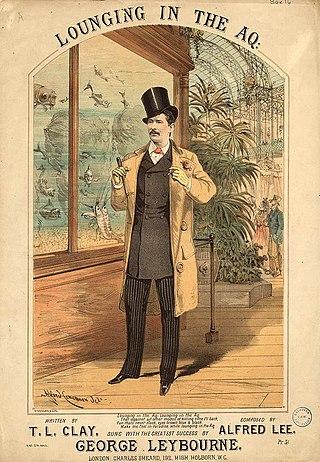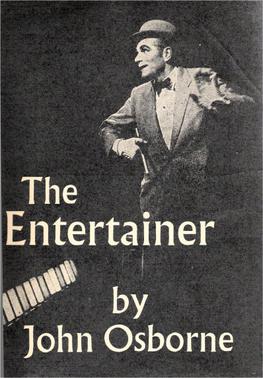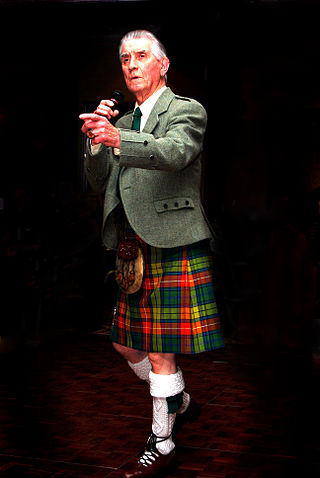
George Leybourne was a singer and Lion comique style entertainer in British music halls during the 19th century who, for much of his career, was known by the title of one of his songs, "Champagne Charlie". Another of his songs, and one that can still be heard, is "The Daring Young Man on the Flying Trapeze". He remains among the best known 19th century music hall performers.

Music hall is a type of British theatrical entertainment that was most popular from the early Victorian era, beginning around 1850, through the Great War. It faded away after 1918 as the halls rebranded their entertainment as variety. Perceptions of a distinction in Britain between bold and scandalous music hall entertainment and subsequent, more respectable variety entertainment differ. Music hall involved a mixture of popular songs, comedy, speciality acts, and variety entertainment. The term is derived from a type of theatre or venue in which such entertainment took place. In North America vaudeville was in some ways analogous to British music hall, featuring rousing songs and comic acts.

Sir William Connolly is a Scottish actor, musician, television presenter, artist and retired stand-up comedian. He is sometimes known by the Scots nickname the Big Yin. Known for his idiosyncratic and often improvised observational comedy, frequently including strong language, Connolly has topped many UK polls as the greatest stand-up comedian of all time. In 2022, he received the BAFTA Fellowship for lifetime achievement from the British Academy of Film and Television Arts.

Sir Henry Lauder was a Scottish singer and comedian popular in both music hall and vaudeville theatre traditions; he achieved international success.

Lagavulin distillery is an Islay single malt Scotch whisky distillery located in the village of Lagavulin on the south of the island of Islay, Scotland.

The Colditz Story is a 1955 British prisoner of war film starring John Mills and Eric Portman and directed by Guy Hamilton. It is based on the 1952 memoir written by Pat Reid, a British army officer who was imprisoned in Oflag IV-C, Colditz Castle, in Germany during the Second World War and who was the Escape Officer for British POWs within the castle.

Foster Brooks was an American actor and comedian best known for his portrayal of a lovable drunk in nightclub performances and television programs.

Ronald Dee White is an American stand-up comedian, actor and author, best known as a charter member of the Blue Collar Comedy Tour. Nicknamed "Tater Salad", he is the author of the book I Had the Right to Remain Silent But I Didn't Have the Ability, which appeared on the New York Times Best Seller list.
This is a list of notable events in country music that took place in the year 1999.

James Allan Short, OBE, FRSAMD, known professionally as Jimmy Logan, was a Scottish performer, theatrical producer, impresario and director.
Will Fyffe, CBE was a Scottish music hall and performing artist on stage and screen during the 1930s and 1940s.

The Entertainer is a three-act play by John Osborne, first produced in 1957. His first play, Look Back in Anger, had attracted mixed notices but a great deal of publicity. Having depicted an "angry young man" in the earlier play, Osborne wrote at Laurence Olivier's request about an angry middle-aged man in The Entertainer. Its main character is Archie Rice, a failing music-hall performer. Years later, Tony Richardson, who directed The Entertainer's premiere season, described Archie as "the embodiment of a national mood ... Archie was the future, the decline, the sourness, the ashes of old glory, where Britain was heading". The first performance was given on 10 April 1957 at the Royal Court Theatre, London. This theatre was well known for its commitment to new and non-traditional drama, and the inclusion of a West End star such as Olivier in the cast caused much interest.
"The Parting Glass" is a Scottish traditional song, often sung at the end of a gathering of friends. It has also long been sung in Ireland, where it remains popular; this has strongly influenced how it is often sung today. It was purportedly the most popular parting song sung in Scotland before Robert Burns wrote "Auld Lang Syne".

John Gerard Beattie, MBE was a Scottish actor and stand-up comedian whose career spanned over six decades. He appeared on shows including the sketch show Scotch & Wry and the sitcom Rab C. Nesbitt, and later appeared in more dramatic roles including Malcolm Hamilton in the soap opera River City.

Tommy Lorne was a Scottish music hall comedian of the 1920s.

Sam Mayo was an English music hall entertainer, pianist and songwriter.
Events from the year 1947 in Scotland.
This is a summary of 1920 in music in the United Kingdom.

Dora Lindsay was a Scottish comedian and singer in the early twentieth century.













